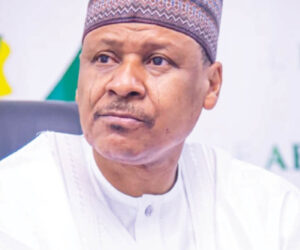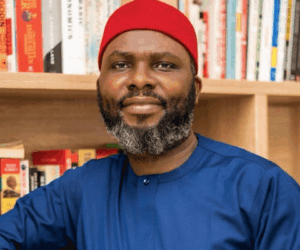Adenike Abdulkereem Lambe, the current Iyaloja General (Market Leader), Kwara State
Adenike Abdulkereem Lambe, the current Iyaloja General (Market Leader), of Kwara State, has said that beyond trading, market women and traders contribute significantly to the development of society. She identified multiple taxation as one of their greatest challenges, encouraged Nigerians to start businesses with as little as N10,000, and urged government and stakeholders to support traders. In this interview with SIKIRAT SHEHU, she emphasized the need for regular town hall meetings between government and traders in the state to address pressing issues, seek redress, and build a productive relationship that will enhance economic growth. Excerpts:
Can you tell us how you became Iyaloja and what your major responsibilities are?
I was appointed Iyaloja General by the Emir of Ilorin, Alhaji Ibrahim Sulu Gambari. The position is not political; it is based on community and economic development. My primary responsibility is to promote peaceful coexistence among traders. Although there are market leaders across major markets such as Ipata Market, Mandate Market, and Oja-Tuntun, my role is to oversee all of them, ensure harmony, and represent their interests. Whenever traders face challenges, they call on the Iyaloja General. By God’s grace, I have been able to mediate issues amicably. If a matter requires the attention of the Emir or other community leaders, I escalate it to them.
How do you maintain law and order among traders?
Kwara State is known for peace, and we approach issues with patience. By God’s grace, this approach has worked well for us. We maintain peaceful relations with little or no rancor.
How would you describe the role of market women/traders in the local economy?
In the past, before politics infiltrated trading, things worked better. Traders were more organised and respected. Politicians used to consult us, but now, they make decisions without carrying us along. This has affected the way we operate now.
What challenges do traders face?
We face numerous challenges. The biggest is lack of access to finance. Many of us did not get any form of financial support to start our businesses, yet we are expected to pay taxes. Sometimes, revenue agencies issue traders outrageous tax assessments. Imagine opening your shop and receiving a letter from KWIRS demanding N500,000 tax for the year. That is heartbreaking!
If government provide adequate facilities in our markets, we could at least justify negotiating and paying a portion. But demanding such high taxes when traders are struggling with little capital is unfair.
We try to support ourselves through cooperative societies. From the little we make, we pay school fees since education is not free, and we also cover medical bills because healthcare is expensive. Imagine, traders carry all these burdens alone.
Today, you see men even selling chinchin just to feed their families. You see government does not know how we source the money we use to start businesses, yet they impose heavy taxes on us. Honestly, it is unbearable.
The situation has worsened to the extent that many families can no longer eat three square meals a day. It has now turned into “0-1-0” – maybe one meal a day.
In what ways do traders contribute to community development beyond trading?
Traders play a big role. Despite economic hardship, we are considerate to buyers. Prices of goods have dropped, yet many people still cannot afford them. For instance, you can buy tomatoes for as little as N200, but some still lack the funds.
Recently, a bag of rice sold for over N100,000, but now it goes for about N60,000 to N61,000. The same applies to beans and other grains. So, the real problem is not availability but lack of purchasing power. By keeping prices reasonable and avoiding unnecessary inflation, we contribute to community stability.
Are the government policies friendly to traders?
The Kwara State Government is trying, but there is still room for improvement. A governor is a leader for all citizens, and policies must reflect fairness, welfare, and support for everyone.
How do you think these challenges can be tackled?
Government should hold regular town hall meetings with traders. This will give us an opportunity to voice our concerns and propose solutions. For example, the Owo Isowo business support initiative, a programme under the current administration did not reach everyone. Giving out N10,000 may not be enough when foodstuffs like rice and semovita cost far more than that.
Government must engage us directly to know what traders truly need. With adequate consultation and genuine support, petty traders will thrive, and the economy will benefit.
During Senator Bukola Saraki’s administration, we attended town hall meetings where we shared feedback on government policies. I believe returning to that practice will help.
What is your message to Nigerians generally?
Nigerians, especially women, must embrace entrepreneurship, no matter how small. No amount is too little to start with.
With N10,000, for instance, you can buy yam, firewood, groundnut oil, and pepper, and start frying yam for sale. From there, you can grow gradually and take care of your family. Adage say – an idle hand is the devil’s workshop. In today’s economy, no one can afford to remain idle.
What would you like to be remembered for as Iyaloja General of Kwara?
Unlike political positions, Iyaloja is a lifetime post. My wish is to continue supporting traders in every way possible.
We have empowered many hopeless women, and today, some of them run thriving ventures. What makes me happiest is that those we empowered are now also empowering others. That is the kind of legacy I want to leave behind.









